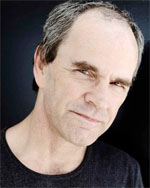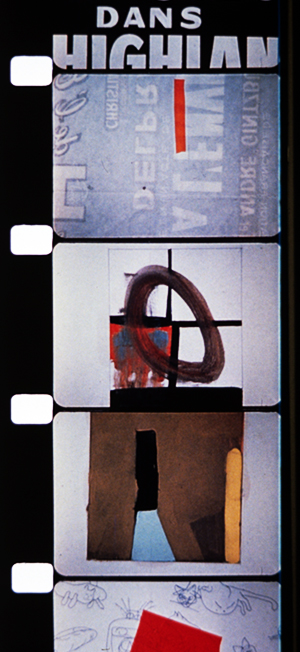The ranks of film critics able to scratch together a living writing about movies have thinned out considerably over the years, but if they were pins on a map, we’d see that, in the English-speaking realm at least, the greatest concentration of them is still in New York. To an extent then, while it might be an exaggeration to say that New York programmers set the agenda for conversation in the cinephilic community, by selecting a forgotten filmmaker to revive, by highlighting an under-appreciated artist or national cinema, or by suggesting a reinterpretation of a particular chapter in cinematic history, they nevertheless have a profound influence. Which is why yesterday’s announcement from the Film Society of Lincoln Center warrants all the attention and chatter it’s generated over the past 24 hours or so.
Private circumstances have called Robert Koehler back to Los Angeles. Just about half a year ago now, when FSLC Program Director Richard Peña stepped down, he and Kent Jones were named Director of Cinematheque Programming and Director of Programming for the New York Film Festival, respectively. Replacing Bob—I’m going to be so presumptuous, having spent a long and wonderful day in his stimulating company a couple of years ago—will be Dennis Lim, critic, editor (Moving Image Source), and programmer (First Look). The FSLC’s Brian Brooks talks with him about the challenge and his goals.
The Cannes Film Festival’s announced that 15 projects from 14 countries have been selected for the 9th edition of the Cinéfondation’s L’Atelier: “By inviting directors and their producers to meet hundreds of potential partners during the Festival de Cannes, L’Atelier offers its participants access to international co-production, thereby maximizing their chances of completing their projects. So far, out of 126 projects presented over the last eight years, 83 have been completed and 29 are currently in pre-production.”
Variety has redesigned and relaunched its site—without the paywall. That’s the good news. Exactly what’s happened to reviews and articles over than about a year is a little unclear, but it may be that we’ll have to subscribe to access the archives.
Via Catherine Grant, a new blog to follow: animationstudies 2.0.
Indiewire‘s Erin Whitney has the lineup for this year’s Sarasota Film Festival (April 5 through 14) and Filmmaker‘s Nick Dawson notes that the fest is “joining forces with Factory 25 to offer a distribution deal as the prize for one of its competition sections.”
Reading. “Not until I went to college and joined a film club did I lay my hands on 16mm.” A marvelous personal history from David Bordwell: “Nowadays it’s easy to own a ‘film’—or rather a disc or file or stream of pixels fed to your display. (Though I wonder what it means to ‘own’ something sitting on the Cloud in your virtual locker.) Back in the day, joining the ranks of 16mm collectors meant a real commitment. You needed to buy gear, you needed to clean and inspect the films, and you needed to learn a little projector maintenance. You probably subscribed to The Big Reel and Classic Film Collector, tabloids that ran ads selling or swapping prints and equipment. And you usually went to film collectors’ conventions, jamborees of selling, trading, and movie watching. The three biggest events, Cinecon (Los Angeles), Cinefest (Syracuse), and Cinevent (Columbus, Ohio), brought together the overwhelmingly male tribe of FOOFs: Fans of Old Films.”
For the Notebook, Noah Teichen translates Paul Gilson’s 1929 article on Harry Langdon’s Three’s a Crowd: “For those familiar with the bland, descriptive write-ups of most movie reviews of the era, this piece comes off as an exhilarating exercise in a deliriously subjective, free-form style of poetic film writing that is more inspired by the film than about it—an approach that, to this day, remains largely unexplored.”
John Garfield would have been 100 yesterday, and the centennial sparked tributes from Kim Morgan and, in Tablet, J. Hoberman: “Jewish audiences recognized Garfield as their first Hollywood leading man. Hollywood recognized that, given his emotional volatility, rapid-fire sarcasm, and confrontational sexual charisma, Garfield was a new sort of screen presence—a Brando before Brando.”
“Of all the self-made moguls who created Hollywood in the early years, no one had started lower or faced a steeper climb than William Fox. He came from pretty much nothing, built an empire, then lost it and ended up with almost nothing.” A biographical overview by John Strausbaugh at the Chiseler.
The inaugural edition of First Time Fest, focusing on debut features, has come and gone, but you can still catch up with Time Out New York‘s Joshua Rothkopf’s interviews: Sofia Coppola on The Virgin Suicides (1999), Hal Hartley on The Unbelievable Truth (1989), Todd Solondz on Welcome to the Dollhouse (1995), and Barbara Kopple on Harlan Country U.S.A. (1976).
“What’s the greatest rock documentary of all time?” asks Matt Singer, and Criticwire members respond en masse.
In the works. Rebecca Hall has joined Johnny Depp and Paul Bettany in the cast of Wally Pfister’s directorial debut Transcendence, executive produced by Christopher Nolan. The Playlist‘s Kevin Jagernauth notes that “the plot revolves around an assassinated scientist who gets his brain uploaded to a computer.”
“According to an exclusive report by Spanish film magazine Fotogramas, Rinko Kikuchi and Juliette Binoche have been cast as the female leads in Isabel Coixet’s Nobody Loves the Night.” Kevin Ouellette has more at Nippon Cinema.
Viewing. Michel Gondry introduces Nowness to his favorite video store; and Mila Kunis talks a nervous British lad through an interview.
For news and tips throughout the day every day, follow @KeyframeDaily on Twitter and/or the RSS feed. Get Keyframe Daily in your inbox by signing in at fandor.com/daily.






